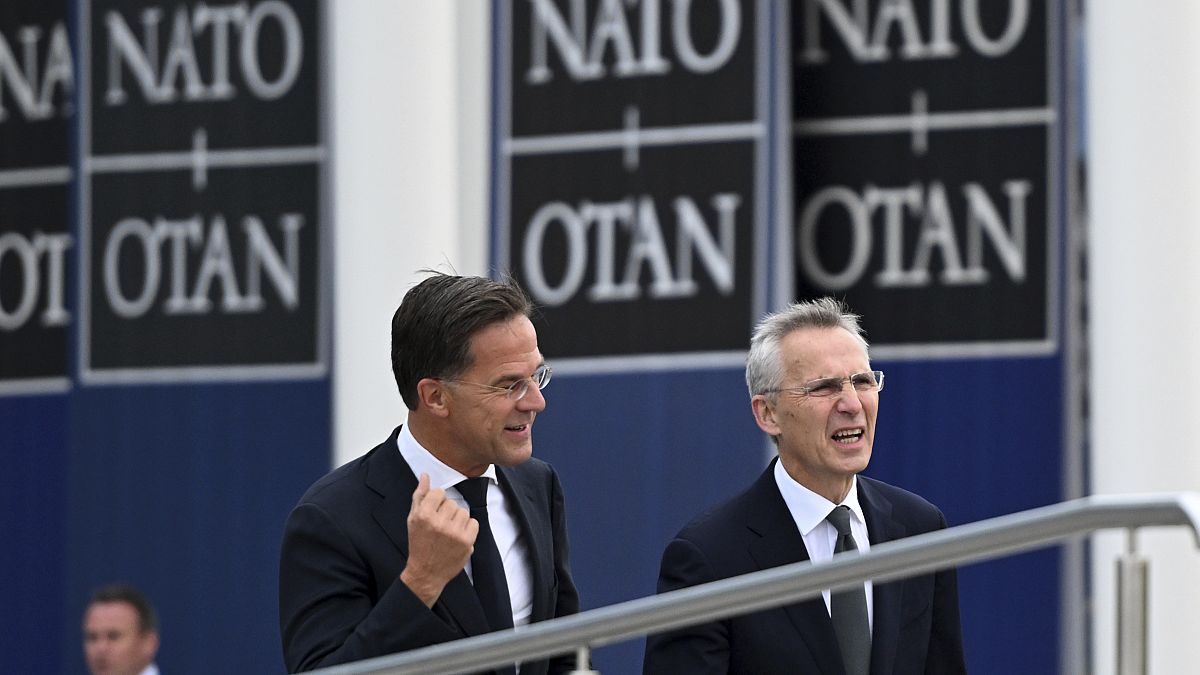Former Dutch Prime Minister Mark Rutte officially took on the role of Secretary General of NATO during a ceremony where he succeeded Norway’s Jens Stoltenberg. Rutte emphasized his commitment to supporting Ukraine and addressing capability gaps within the alliance. He expressed gratitude for the trust placed in him by NATO member nations and pledged to strengthen the transatlantic bond, regardless of the outcome of the upcoming US elections.
Rutte stated that supporting Ukraine was a top priority for him, along with enhancing collective defense and deterrence. He acknowledged the importance of investing in NATO’s partnership with the European Union and other countries around the world. Rutte also mentioned the need to address concerns raised by Stoltenberg regarding potential duplication of efforts between NATO and the EU’s military strengthening efforts. As he took on his new role, Rutte emphasized the unity and strength of NATO under his leadership.
European Commission President Ursula von der Leyen welcomed Rutte’s appointment as Secretary General of NATO, while also expressing concerns about the impact of a potential second term for US President Donald Trump on the alliance. Stoltenberg, in his farewell remarks, highlighted the increase in defense spending among NATO allies and the addition of four new countries to the alliance in response to Russian aggression. He welcomed Rutte to the role and praised the progress made during his tenure.
Rutte’s inauguration as Secretary General of NATO marks a new chapter for the military alliance, with a focus on supporting Ukraine and strengthening capabilities. His commitment to maintaining a strong transatlantic bond and enhancing partnerships with the EU and other countries demonstrates his dedication to fostering unity within NATO. As Rutte takes the reins from Stoltenberg, he faces challenges such as potential duplication of efforts and uncertainty surrounding the outcome of the US elections.
The transition of leadership at NATO comes at a critical time, with ongoing tensions in various regions and the need to adapt to evolving security threats. Rutte’s experience as a former Prime Minister and his stated priorities point towards a proactive approach to addressing these challenges. By emphasizing the importance of collective defense and deterrence, as well as strategic partnerships, Rutte signals his commitment to advancing NATO’s objectives under his leadership.
Overall, Mark Rutte’s appointment as Secretary General of NATO represents a continuation of NATO’s mission to promote stability and security in the Euro-Atlantic area. His focus on supporting Ukraine and strengthening partnerships will be essential in navigating the complex geopolitical landscape. With his inauguration, Rutte sets a clear agenda for his tenure, highlighting the importance of unity, capability enhancement, and strategic cooperation within the alliance. As NATO moves forward under Rutte’s leadership, it will be interesting to see how his vision translates into tangible actions to address the challenges facing the alliance.











